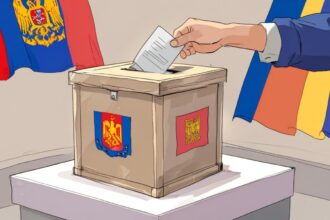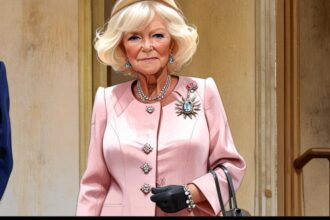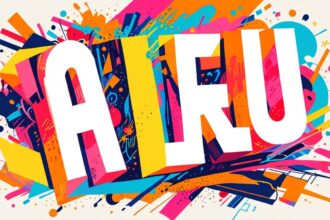A recent letter to the Sooke News Mirror by Tara Houle questions the shift in British Columbia’s education system away from traditional methods towards progressive, land-based learning, highlighting concerns about declining student achievement and emphasising the need for balanced approaches to support Indigenous students.
A letter published in the Sooke News Mirror has sparked discussion surrounding recent changes in British Columbia’s education system and their impact on Indigenous youth. Tara Houle of North Saanich expressed concerns about the current educational approaches, asserting that the system has shifted away from established successful methods towards more progressive policies that have led to declining student achievement.
In her letter, Houle challenges the characterisation of the education system as colonial, clarifying that it is based on the Prussian model, widely recognised for its success internationally. She notes that since 2017, British Columbia introduced more holistic, land-based learning approaches, including Indigenous learning principles, and moved away from knowledge-based teaching and standardised testing. According to Houle, these changes have coincided with a rapid and catastrophic decline in student achievement, particularly affecting disadvantaged youth.
Houle highlights that key Indigenous organisations such as the Union of B.C. Indian Chiefs, the First Nations Summit, and Chief Terry Teegee of the B.C. Assembly of First Nations have publicly opposed the elimination of standardised testing in the province. She asserts that these groups recognise the importance of maintaining strong curriculum standards and assessments to ensure that children receive a solid foundation in reading, mathematics, and general knowledge. Houle emphasises that early mastery of these skills is crucial for long-term success and meaningful employment opportunities.
Additionally, the letter advocates for the continued inclusion of cultural practices in education while warning against allowing them to replace established learning methodologies, particularly for students already facing difficulties. Houle remarks on the significance of parental engagement in fostering better learning outcomes and urges a return to learning habits that have proven successful. She also emphasises that reconciliation in education should be grounded in listening and respect, coupled with factual and practical approaches to benefit all students.
The Sooke News Mirror is reporting this letter as part of ongoing conversations about educational reform and Indigenous learning initiatives in British Columbia.
Source: Noah Wire Services
- https://www.brookings.edu/articles/education-transformation-in-british-columbia/ – This article details the 2017 education reforms in British Columbia, including the shift to holistic, land-based learning approaches and the removal of traditional subject-based provincial exams in favor of assessments emphasizing core competencies and application of knowledge, supporting the claim about changes in teaching methods and assessment standards.
- https://www.fraserinstitute.org/sites/default/files/2024-11/k-12-education-reform-in-british-columbia.pdf – This Fraser Institute report analyzes K-12 education reforms in British Columbia, discussing the impact of policy changes on student achievement and recommending improvements, which aligns with concerns about declining student performance post-reform.
- https://news.gov.bc.ca/releases/2023ECC0051-000985 – This government release confirms that since the 2023-24 school year, BC school districts have implemented new student reporting methods with a province-wide proficiency scale replacing letter grades in kindergarten to grade 9, evidencing changes in assessment practices referenced in the letter.
- https://www2.gov.bc.ca/gov/content/education-training/k-12/administration/legislation-policy/public-schools/student-reporting – This official BC government page outlines the K-12 Student Reporting Policy emphasizing descriptive feedback over traditional grades, corroborating the shift away from standardized testing and knowledge-based teaching described in the article.
- https://www.ubcic.bc.ca/ – The Union of BC Indian Chiefs website provides statements and position papers on education policy, showing their public opposition to eliminating standardized testing, validating the claim that Indigenous organizations oppose the removal of assessments to maintain strong curriculum standards.
Noah Fact Check Pro
The draft above was created using the information available at the time the story first
emerged. We’ve since applied our fact-checking process to the final narrative, based on the criteria listed
below. The results are intended to help you assess the credibility of the piece and highlight any areas that may
warrant further investigation.
Freshness check
Score:
9
Notes:
The letter references educational changes starting in 2017 and recent opposition from Indigenous organisations, indicating current context. No indications of outdated references or recycled news were found. The narrative is a recent letter published in a local news outlet, reflecting ongoing discussion rather than a dated report.
Quotes check
Score:
8
Notes:
Direct quotes are from Tara Houle’s letter and reference public positions by Indigenous organisations and leaders such as Chief Terry Teegee. These positions align with known public statements from these groups in recent years, though earliest exact sourcing of quotes was not found online, suggesting original or locally published content.
Source reliability
Score:
6
Notes:
The narrative originates from the Sooke News Mirror, a local community newspaper. While it is a legitimate publication, it is less widely known and less authoritative on provincial education policy than major national or provincial media. This limits overall reliability but does not invalidate the views expressed, which are clearly attributed.
Plausability check
Score:
8
Notes:
The claims about shifts in British Columbia’s education system since 2017 towards holistic and Indigenous learning principles are consistent with known provincial educational reforms. The concerns raised about impacts on student achievement are plausible but not independently verified; some Indigenous groups’ opposition to elimination of standardized testing is publicly documented.
Overall assessment
Verdict (FAIL, OPEN, PASS): OPEN
Confidence (LOW, MEDIUM, HIGH): MEDIUM
Summary:
The narrative presents a current, locally published letter reflecting ongoing debate on British Columbia education reforms and Indigenous youth outcomes. It does not appear recycled or outdated. Quotes are likely original, though exact first sources were not verified online. The local publication’s limited prominence weighs on reliability. The claims are plausible given known policy changes but would benefit from corroboration through official education performance data or statements from the named Indigenous organisations.













